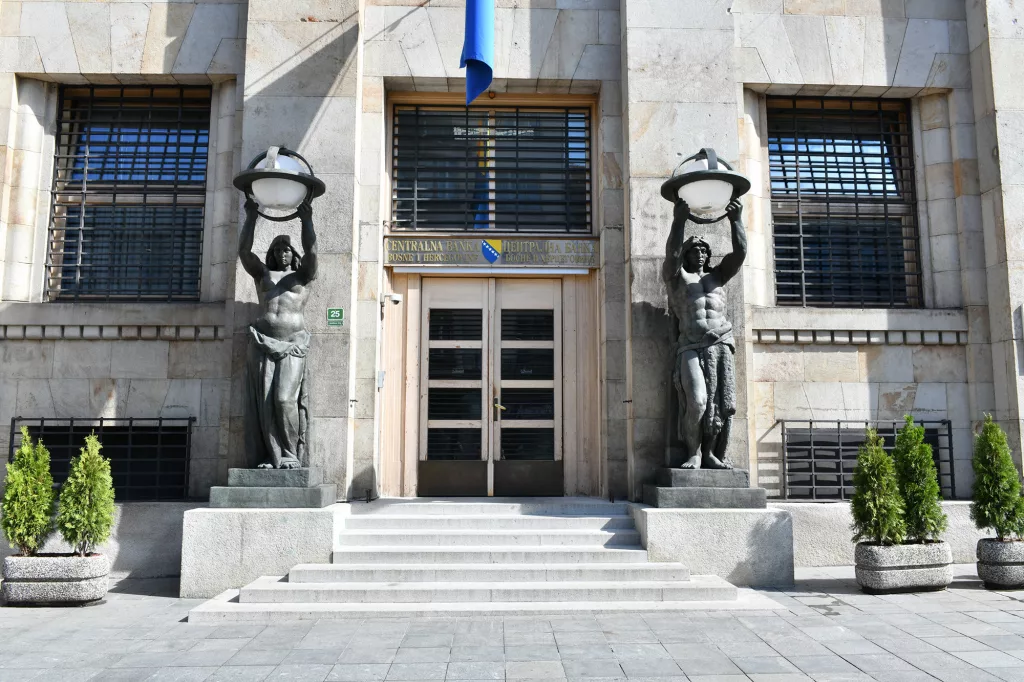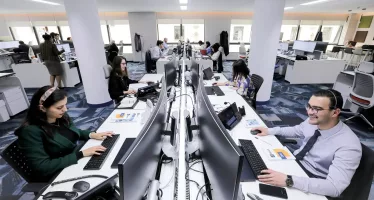Challenging World, Capable Bank: CBBH has Thrived Despite Litany of Disorder on International Stage
The Central Bank of Bosnia and Herzegovina (CBBH) started operating in 1997 as the sole institution responsible for issuing currency and monetary policy in the country.

Governor: Senad Softić
Its objective is to maintain the stability of the domestic currency, the convertible marka, which is backed by the euro. The CBBH has operated under complex conditions, within the country and internationally, but has managed to maintain that monetary stability. It has also contributed to the macro-economic and financial stability of the country as a whole.
Challenge is nothing new to the CBBH, starting with the introduction of the single currency, the reform of the payment system and the banking sector, the exchange of DEM for EUR and the fixed exchange rate for KM. Factor in the financial crisis of 2008/2009, and the implementation of projects with the European Central Bank and the central banks of the Euro system until the introduction of European central banking standards and it is plain that there have been hurdles to overcome.
Recent years have also been marked by turbulence in Europe and worldwide. Under the leadership of its governor, Senad Softić, CBBH has thrived despite the pandemic and geopolitical events. It has ensured the stability and convertibility of the domestic currency, the maintenance of cash circulating, and the increase of foreign exchange reserves. The CBBH ended 2021 with the highest-ever amount of foreign exchange reserves.
It also managed to implement projects that have improved business processes.
Foreign exchange reserve investment is one of the main tasks of the CBBH. Investments are adjusted for safety, liquidity, and maximum profitability. Complex conditions mean that has not been a painless process — but it was necessary. Although it is a non-profit institution, the CBBH has seen a positive result. It has upgraded its diagnostic tools. Since 2021, it has been publishing nowcasts of economic activities, the dynamics of real GDP and inflation in Bosnia Herzegovina on a quarterly basis.
The stats been improved and harmonised with European standards. In the area of statistics, a lending survey has been introduced, enabling more detailed analyses of credit market trends, aiding analytic and research tasks. This research in methodological terms has been significantly adjusted, with a similar survey conducted for the euro area.
Following up with the trends and modernisation of payment systems is another objective. In 2019, a new giro-clearing system adjusted with the ISO 20022 i SEPA standard was put in operation. There are ongoing preparations for innovative payments methods in line with modern EU and international trends. This encourages financial inclusion, decreases costs, simplifies payments, and improves the infrastructure of domestic financial markets.
Rating agencies mention the CBBH as an important economic anchor in the country, with activities and policies in line with the best global practices.
In the area of financial education and inclusion, the CBBH has taken a leading role, devoting special attention to younger population groups. In focus are users of financial remittances from foreign countries, with the advantages of official channels for fund transfers and instruction on how best to send funds.
These efforts have required intensive, timely, and clear communication with the public. Stability is a key reference in the messages CBBH sends out. It has kept public confidence as an independent institution, with the stability of marka a key factor.
The replacement of treasury machines in all vaults with state-of-the-art equipment was successfully completed. According to the Transparency International Corruption Perception Index (CPI) for 2022, Bosnia Herzegovina takes a low position in Europe. By developing compliance and raising the level of business ethics and integrity, the CBBH has the safe, protected and anonymous reporting of any irregularities. This applies in conflict-of-interest situations, corruption, and other irregularities.
The CBBH has always contributed to the country’s international obligations. It has earned a reputation as a credible source of data, information and analyses. The institution is considered to be a public good, and the effects of its activities have always been communicated to the public.
International financial institutions such as the International Monetary Fund, the European Central Bank and the European Commission have also stressed the achievements of the bank, and acknowledged the significance and role of the monetary policy and currency board. It has been recommended to continue its role in protecting the integrity of currency board, and its independence.
The future will hold new challenges. The fact that the CBBH is considered to be one of the most stable and successful institutions is an acknowledgement of everything done over the past 25 years. It is seen, too, as an obligation to constantly improve.

Central Bank Governor has Reams of Acknowledgements to his Name
The governor of the Central Bank of Bosnia and Herzegovina, Senad Softić, is a full-time professor at the Faculty of Economics of the University of Sarajevo.
He is the chairman of the management board of the country’s Deposit Insurance Agency, and a member of the Advisory Group of the European Fund for Southeast Europe (EFSE).
Softić is the author and co-author of 16 books and monographs. In his many years of consulting and research practise, working at the Institute for Organisation and Economics in Sarajevo (1987-1995), and the Economic Institute in Sarajevo (1995-2007), he participated, as author, co-author or manager in the preparation of more than 130 studies, projects and papers from various micro- and macro-economic areas.
During his professional career, he has been the deputy chairman of the supervisory board of the Investment Bank, later the Development Bank of the Federation of Bosnia and Herzegovina.
For his work on preserving monetary stability and his contribution to maintaining the financial stability of BH, Senad Softić has won much recognition. He was BiH — European Person of the Year in the Field of Finance, an award by the European Independent Agency Sarajevo Secretariat of the Regional Directorate for the Selection and Promotion of Managers of BH, Southeast and Central Europe (2022).
He received the Golden BAM for his contribution to the stability of the country’s financial system of (2020), Večernjakov pečat for the person of the year in the Public Administration category for 2020, the Best Manager in the Field of Finance (2017), and recognised for the best university textbook for his book Symptoms and Causes of the Crisis of Companies in BH (2011).
Softić has rich international experience, and is a member of several international bodies in the field of monetary policy and management, including the Advisory Group of the European Fund for South-Eastern Europe. Since 2015, he has participated as an opening speaker, speaker, and panellist in numerous international conferences organised by international financial institutions including the International Monetary Fund, World Bank, European Central Bank, and European Bank for Reconstruction and Development.
He is a permanent participant in the Economic and Financial Dialogue between the European Union and the Western Balkans, Turkey, and Brussels (2016-2022).
You may have an interest in also reading…
BBVA Asset Management: Going Global in the Battle to Bring Sustainability to the Wider World of Investment
Spanish bank BBVA is working on a global strategy which will affect all of its investment solutions. BBVA Asset Management
Change, Challenge, Autonomy and Teamwork: Secrets of SENER Group’s Andrés Sendagorta
CFI.co gets to know Andrés Sendagorta, president of private engineering and technology specialist the SENER Group. It was founded in
A Tunisian Transformation: BIAT is Driven by Civic Duty, Concern for the Planet, and Prudent Risk-Avoidance
Banque Internationale Arabe de Tunisie implements strategic projects and initiatives — and meets with enviable success BIAT’s financial performance attests


















































































